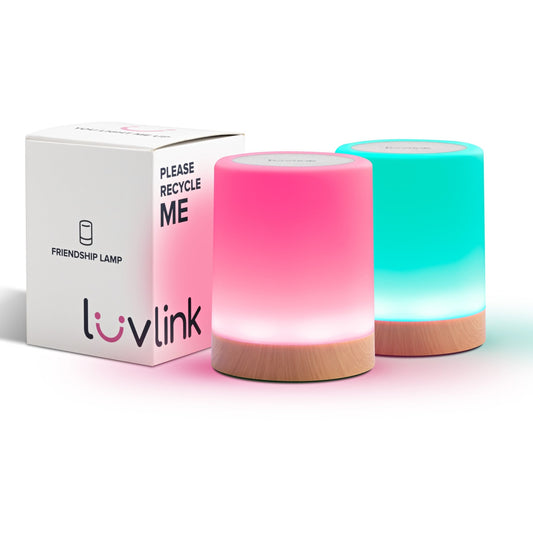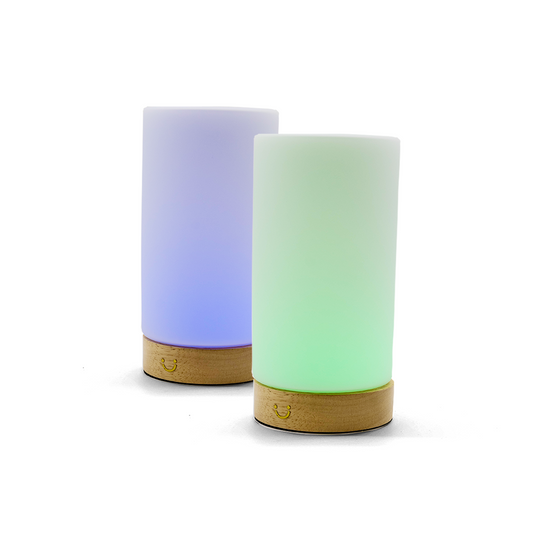Every good relationship is built on a foundation of trust, intimacy, honesty, and loyalty. But the reason these are the foundations is so that both partners can enjoy emotional health and well-being in the relationship. From that viewpoint, is your relationship emotionally healthy or are there areas that you need to work on? This simple series of tests will tell you exactly what you want to know about the emotional health of any relationship.
The basic test of any relationship from an emotional perspective is how you feel about each other; in other words, your 'emotional temperature' when the other person is around. Are you emotionally relaxed? Are you charged up in a positive way? Are you tense all the time around them? Are they tiptoeing around you, emotionally? These are all temperature checks that indicate if there's anything wrong with a relationship. While there's obviously nothing called a perfect relationship, a lot of good ones come pretty close. You see that not only with couples but also with individuals who have been close friends for several years. There's a level of comfort that both achieve when they're together.
We've all felt that with someone in our lives, and that's the essence of what we're trying to capture in every other relationship in life. It's the Great Search for that perfect person - Ms. or Mr. Right.
The only way to ascertain the level of emotional health that your relationship has currently attained is to ask yourself some hard questions about how these tests apply to you and your significant other. Be sure not to skip the questions that will ultimately lead you to an answer to this question: Is my relationship emotionally healthy, how healthy is it?
To the best of your ability, these questions should be answered honestly. That's the only way to get a real picture of how emotionally healthy or unhealthy your relationship actually is. That being said, please do not consider this to be the only benchmark for the emotional health quotient of a relationship. But we'll touch on that later on.
With that, let's get into the testing part, which is the fun part of this conversation - how do you test the emotional health of your relationship with someone else?
Test #1: The Test of Negativity
The first and most basic test is to see how much negativity is there between the two of you in a typical conversation. Negativity can be expressed in many ways, both overt and covert. For example, sarcasm is a more pronounced way of expressing negative emotions, but subtle jabs at the person's competence or capabilities are just as harmful, like grunting at her cooking or rolling your eyes when he says he'll fix the dripping tap in the kitchen. Even a small facial gesture or sound emanating from your lips can have a devastating effect on a person's confidence in the long term.
Another point to note here is that negativity is often suppressed, which is classically embodied in the elderly husband automatically voicing a "Yes, dear" followed by mumbling under his breath once he's out of earshot. That's not healthy, either.
The absence of any significant amounts of negativity, therefore, is the first test of emotional health in a relationship. Of course, no relationship is devoid of negativity because we're all human, and humans tend to get negative when things don't go their way. However, the moment it starts affecting the quality of the relationship, it becomes a problem.
Questions to Assess Negativity
- Does either of you stay mad for a long time after an argument?
- Do you or your partner harbor any resentment against each other because of financial status, education, physical looks, family background, etc.?
- Do you often take vicious digs at each other in front of company? Does one person do this frequently?
- Is there a lot of sarcasm going back and forth?
- Do you feel you're spending more time alone than with each other and you don't really care?
Test #2: The Test of Positivity
Being in good humor together, using terms of endearment, talking affectionately at all times (except when arguing, of course), and mirroring movements are all signs of solid emotional health in a relationship. Positive emotions always trump negative ones, which is why this is an even more crucial test of the emotional health of a relationship. As a matter of fact, if there's enough positivity in the relationship, it can dilute the negativity to a great extent.
In other words, if there's a lot of negativity in a relationship, it can be countered with positivity. That's the reason psychologists recommend a change of scenery, organizing date nights, doing fun activities together. If you can bring laughter and love back into a relationship, it will prevail over the most negative of emotions. It's not a cure-all, mind you, but it's some very powerful medicine.
The presence of positivity, therefore, is the second and more powerful way to test if your relationship is emotionally healthy.
Questions to Assess Positivity
- Are you spending a lot of time with each other, talking or just sitting in silence? Sitting in front of a screen watching 4 hours of a Netflix series doesn't count!
- Is there honesty in the relationship? Is there a willingness to share your day with your partner?
- Do you laugh together a lot or do you make each other laugh often? Do your moods seem to reflect one another's?
- Are you physically intimate outside the bedroom - holding hands, kissing, etc.?
Test #3: The Test of 'Share of Mind'
Share of mind is simply the amount of time that something occupies your thoughts as a percentage of your total awareness time. In other words, how much you think of something when you're conscious and actively thinking. Couples with very strong relationships are constantly thinking about each other whether it's at the conscious or subconscious level. It is the state of mind that prompts the "Oh, he'll love that watch" or the "My God, that purse would be perfect for her" moments.
Interestingly, the share of mind for each other is at its highest level when two people fall in love for the first time. You don't need science to tell you that two lovers who just got together are constantly thinking about each other. In fact, there's little else you can think of when you're in love. Over time, however, that share of mind gets increasingly less, meaning you start thinking about each other less often when you're apart. It's a survival mechanism or we'd all die of starvation or thirst days after we fall in love! Other things need their share of mind as well. Somewhere beyond this point, love becomes an act as opposed to an emotion.
Remember this because it's very crucial.
When your reciprocal share of mind drops below a certain level, love becomes an active effort rather than a passive emotion. It has to because that's the only way to maintain your share of mind for each other. If that first phase was called 'falling in love', this one's called 'staying in love.'
It's usually seen in the form of doing things for each other, talking on the phone more often in the case of long-distance relationships, getting each other gifts, etc. In other words, it is expressed in the form of being an active participant in love rather than simply partaking of it. You partook long enough; now it's time to replenish the emotional vessel! Most couples make the mistake of participating and partaking too much in the early days of the relationship and eventually stop doing the participating. The reason it's a mistake is that participating is the only way to keep the love alive and thriving.
Share of mind is such a powerful concept that it can keep couples bonded strongly together even if they've been separated by thousands of miles for several years. That's how long-distance couples survive the ordeal - by voluntarily giving each other a generous share of their minds. All those saying about love overcoming anything, love knowing no boundaries, love is this, and love is that - they're all based on this simple but earth-shattering concept called share of mind.
So, this is the third and even more crucial test of a relationship and the state of its emotional health.
Questions to Assess Share of Mind
- How many times a day do you catch yourself thinking of each other?
- Do you often come across things you think the other person might love to see, hear, or have?
- When either of you makes a decision, do you consider the other person's perspective?
- Can you put yourself into your significant other's shoes and feel how they feel about something?
- Are you actively participating in nurturing the relationship or are you merely continuing to partake in the hope that the other person will do all the participating?
- Do you go out of your way to do things for each other?
Test #4: The Test of Championship
Confused? No, we're not talking about winning against someone or dominating them. We're talking about how you stand up for each other as individuals whether the other person is around to speak for themselves or not. We've all heard of someone championing a cause, right? Well, are you championing your significant other to the world at large?
Here's how the word, in this context, is defined by the dictionaries in its many forms:
Championship: the support someone gives to a person, belief, right, or principle
To Champion: to act as a militant supporter of
Championing: protecting or fighting for as a champion
Some call it loyalty but that's only a small part of it; nevertheless, it's a good starting point to understanding this concept and how it can be used to test the emotional health of any relationship.
The loyalty aspect of championing another person means sticking up for them and standing up to anyone who criticizes them unjustly. I say unjustly because blind loyalty leads you to defend things that are sometimes indefensible. For instance, if a friend says that your girlfriend has a nasty temper and you know that to be true, you can't just gloss over it with an "Oh, she's just a passionate person." No, she's plain nasty when she's pissed! That's not loyalty in the sense we're using it.
The loyalty we're talking about is about making a promise to stand by that person no matter what. In the example we just saw, true loyalty would be expressed by agreeing with your friend that, yes, your girlfriend does have a nasty temper but she's working on it (if that's true), but
not loving her any less because of it.
This is called championing her. You're not blindly defending her faults but you are standing by her no matter what. It does not decrease her worth in your eyes, nor does it force you to respond in a manner you'll later regret. It is one of the noblest forms of loyalty that any person can ask for, and if you can give that to each other, your relationship will be rock-solid.
But championing a person is more than merely showing loyalty. A dog can show loyalty; a dog cannot champion a person. To champion someone also means to actively edify them at every opportunity that presents itself. It sounds like an obscure concept but it's really very simple. It is the art of lifting them up in the eyes of everyone else. It can be done in the form of verbally complimenting them in front of other people, it can be through saying good things about them in their absence, and it can be in a myriad of other forms.
The underlying sentiment is one of intense admiration that others can clearly see in the way you look at him, treat him, talk to him, and talk about him.
These, therefore, are the three pillars of championship: loyalty, respect, and edification. The three of them are related but distinct from each other. You can edify someone without any sense of respect or loyalty - it's called being a sycophant or a yes-man. You can respect someone but not edify them or be loyal to them for fear of criticism - such a person might be called a silent admirer. And you can certainly be loyal to someone without respecting them or seeking to edify them in any way. As I said, a dog can do that.
No. Championship is a blend of the three so heady that it can rival any blended scotch whisky in the world! And it is, by far, the ultimate test of the emotional well-being of a relationship.
Questions to Assess Championship
- Are you supportive of each other at the emotional level?
- Is there empathy in the relationship? Do you feel each other's pain and pleasure?
- Are you standing up for each other against attacks from outside?
- Do you edify and uplift each other every chance you get?
- Do you support each other's passions even if they're not aligned with yours?
Assessing the Emotional Health of Your Own Relationship
Now for the part you actually came for - How emotionally healthy is your relationship? Have you gotten to the point where there's very little negativity? Have you crossed over and added so much positivity that the negative doesn't matter anymore? Have you graduated to a level where you are deeply embedded in each other's conscious and subconscious minds? Are you qualified to say that you are champions for each other?
The Results of these Tests are Only Part of the Equation
Attaining any of these levels shows a good deal of emotional health, but the more tests you can pass, the better. At the very highest level, there's no more testing required because it's clear to you and everyone around you that the two of you were just 'meant to be.'
As simple as we've made it sound, the health of a relationship is far more complex than that. We've managed to narrow it down to four simple tests, but nothing means anything if you don't love each other. Everything else is just a 'symptom' or 'byproduct' of that love. Love is at the center of all things and is the guiding force in your relationship. It is love that fights negativity; it is love from which positivity arises; it is love that leads to a healthy share of mind, and it is love that you champion when you champion that which you love. Wow, don't you love that?
In closing, we'll leave you with this insightful little poem that captures some of what we've discussed:
Sweetheart, have you ever thought about how beautiful our relationship is?
I wonder if it is possible for couples to be like us
So open to each other
Having nothing to hide
Honest
No fear but only respect for each other
Accepting unconditionally
Loving without a break
Anger that vanishes in a kiss, sometimes in just a touch
Expressing love even when there is no understanding
Trust to the core
Enjoying the togetherness
Encouraging the uniqueness
Desiring to live long together
So playful
So naughty
So cute
So loving
So caring
So romantic
Never I
Always US.
Maybe it's because of the path our relationship had taken
Genuine affection drew us to each other
We respected each other
Friendship took over and made our bond stronger
We loved each other's company,
Had no expectations from each other
Our respect and friendship paved way to trust
Trust made us share our secrets, our real selves
By sharing, we exchanged our hearts, our lives
And our love
And God blessed and approved our love
Because He had made us for each other.
Our love is a mixture of all relationships... which makes us so unique.
Darling, we are so beautiful!
-- Monica Jeevan on FamilyFriendPoems
Have you seen our Friendship Lamps Yet?
A great way to communicate and stay in touch with long-distance friends, family members, spouses, and partners.
Just touch your lamp and the other person's lamp lights up in a specific color of your choosing!





